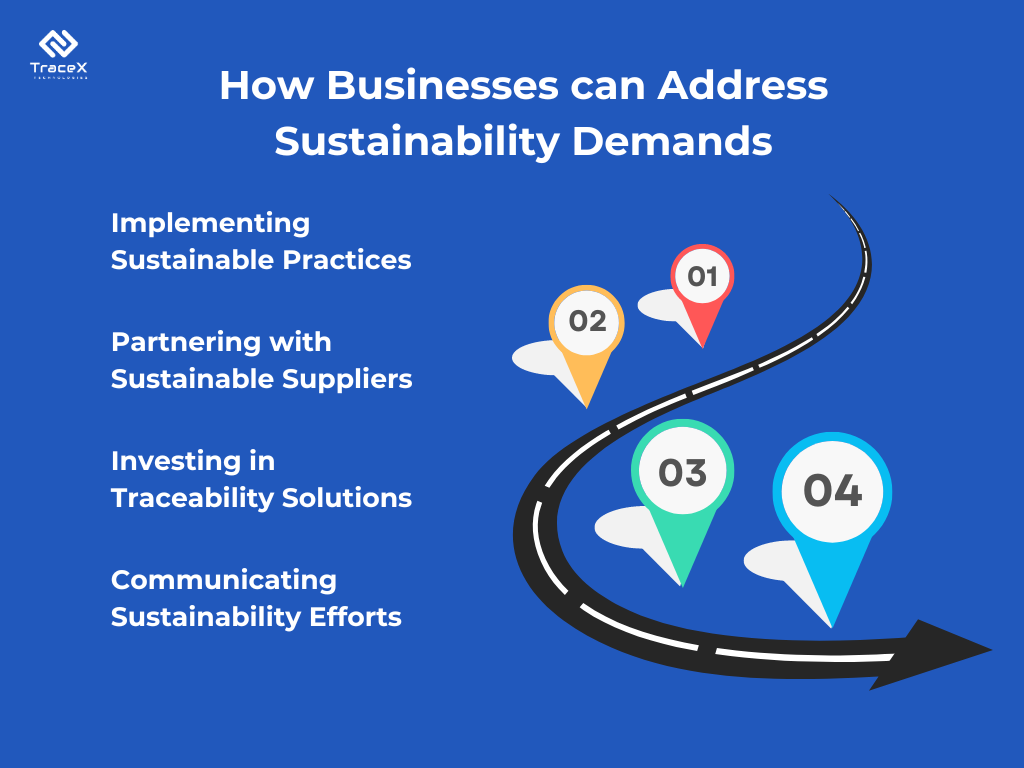Contact: +91 99725 24322 |
Menu
Menu
Quick summary: Discover how agribusinesses in Southeast Asia are addressing consumer demands for sustainability. Learn about innovative practices, sustainable sourcing, and the role of technology in transforming agricultural value chains to meet environmental and social standards.

Do you know?
Consumers are questioning environmental practices, ethical sourcing, and potential deforestation linked to their favourite Southeast Asian products. Lack of clear information about a product’s journey from farm to shelf leaves consumers feeling frustrated and disconnected. Without trust in sustainable practices, consumers are more likely to switch brands or avoid products altogether. In recent years, there has been a significant shift in consumer demands for sustainability.
This change is particularly evident in Southeast Asia, where consumers are becoming increasingly aware of the impact their purchasing decisions have on the environment. For agribusinesses in this region, meeting these demands is not just a matter of corporate responsibility but also a strategic imperative to stay competitive in the market.
Consumers in Southeast Asia are becoming more conscious of sustainability issues. A study by Nielsen found that 81% of global respondents feel strongly that companies should help improve the environment, with Southeast Asia showing a significant upward trend in this sentiment. This is reflected in the increasing preference for products that are sustainably sourced, organic, and environmentally friendly. Transparency in supply chains has become a critical factor for consumers. They want to know where their food comes from, how it is produced, and whether it meets ethical and environmental standards.
A survey by IBM and the National Retail Federation revealed that nearly 70% of consumers are willing to pay a premium for brands that offer full transparency and traceability.
Consumers today are increasingly concerned about the environmental and social impact of the products they buy. This growing demand for sustainability is driven by several factors:
Here’s a breakdown of what consumers are looking for in sustainable products:
By understanding and meeting consumer demands for sustainability, businesses can not only build trust and brand loyalty but also contribute to a more responsible and environmentally conscious marketplace.

Agribusinesses can adopt various sustainable farming practices to reduce their environmental footprint. This includes organic farming, precision agriculture, and agroforestry. Organic farming eliminates the use of synthetic pesticides and fertilizers, promoting biodiversity and soil health. Precision agriculture uses technology to optimize field-level management regarding crop farming. Agroforestry integrates trees and shrubs into agricultural landscapes, enhancing biodiversity and reducing greenhouse gas emissions.
Smallholder Farmers in Indonesia
In Indonesia, smallholder farmers have adopted organic farming practices to meet the growing demand for organic products. These practices have led to a reduction in production costs and an increase in income due to the premium prices that organic products command.
Technological advancements such as blockchain, IoT (Internet of Things), and GIS (Geographic Information Systems) have made it possible to track and trace agricultural products from farm to table. These technologies provide consumers with detailed information about the product’s journey, ensuring transparency and building trust.
Traceability Platform from TraceX
TraceX’s traceability platform, has enabled agribusinesses to provide end-to-end transparency in their supply chains. By using blockchain technology, the platform ensures that every step of the production process is recorded and immutable, giving consumers confidence in the authenticity and sustainability of their purchases.
Obtaining certifications such as Fair Trade, Rainforest Alliance, and GlobalGAP can help agribusinesses demonstrate their commitment to sustainability. These certifications are recognized globally and provide a competitive advantage in the market.
Thai Union Group
Thai Union Group, one of the world’s largest seafood producers, has achieved several certifications for its sustainable practices. This includes Marine Stewardship Council (MSC) certification for sustainable fishing and Aquaculture Stewardship Council (ASC) certification for responsible aquaculture. These certifications have helped Thai Union build a strong reputation for sustainability and attract environmentally conscious consumers.
Building a sustainable business model requires collaboration with various stakeholders, including farmers, suppliers, consumers, and NGOs. Agribusinesses should engage in dialogues and partnerships to promote sustainable practices across the supply chain.
Olam International
Olam International, a global agribusiness company, has implemented the Olam Livelihood Charter, which focuses on improving the economic, social, and environmental well-being of smallholder farmers. Through this initiative, Olam provides training, resources, and financial support to farmers, promoting sustainable practices and enhancing their livelihoods.
Reducing greenhouse gas emissions is a crucial aspect of sustainability. Agribusinesses can adopt practices such as no-till farming, cover cropping, and the use of renewable energy to minimize their carbon footprint. Additionally, companies can invest in carbon offset projects to compensate for their emissions.
Sime Darby Plantation
Sime Darby Plantation, one of the largest palm oil producers in Southeast Asia, has committed to reducing its carbon emissions by 40% by 2030. The company has implemented various initiatives, including methane capture from palm oil mill effluent and the use of biomass as a renewable energy source.
While the benefits of adopting sustainable practices are clear, agribusinesses in Southeast Asia face several challenges:
Governments and non-governmental organizations (NGOs) play a vital role in promoting sustainability in agribusiness. They can provide financial incentives, create favorable policies, and offer education and training programs to support agribusinesses in their sustainability efforts. Governments in Southeast Asia are increasingly recognizing the importance of sustainable agriculture. For instance, the Philippines has launched the Organic Agriculture Program, which provides technical and financial support to farmers adopting organic farming practices. NGOs such as the Rainforest Alliance and Fair Trade International work with agribusinesses and farmers to promote sustainable practices. They offer certification programs, training, and resources to help businesses meet sustainability standards.
1. Building Consumer Trust and Transparency:
2. Optimizing Sustainable Practices:
3. Supporting Premium Pricing for Sustainable Products:
4. Collaboration and Industry Transformation:
By implementing TraceX, agribusinesses can demonstrate their commitment to sustainability, empower consumers with informed choices, and ultimately contribute to a more responsible and environmentally conscious food system for everyone.
Meeting consumer demands for sustainability is no longer optional for agribusinesses in Southeast Asia. It is a strategic imperative that can enhance competitiveness, build consumer trust, and contribute to environmental and social well-being. By adopting sustainable farming practices, leveraging technology for traceability, obtaining certifications, engaging with stakeholders, and reducing their carbon footprint, agribusinesses can meet these demands effectively. Despite the challenges, the benefits of sustainability far outweigh the costs, making it a worthwhile investment for the future.
In conclusion, the shift towards sustainability in Southeast Asia’s agribusiness sector is a positive trend that holds immense potential for the environment, economy, and society. By embracing this shift, agribusinesses can ensure long-term success and contribute to a more sustainable future for all.
